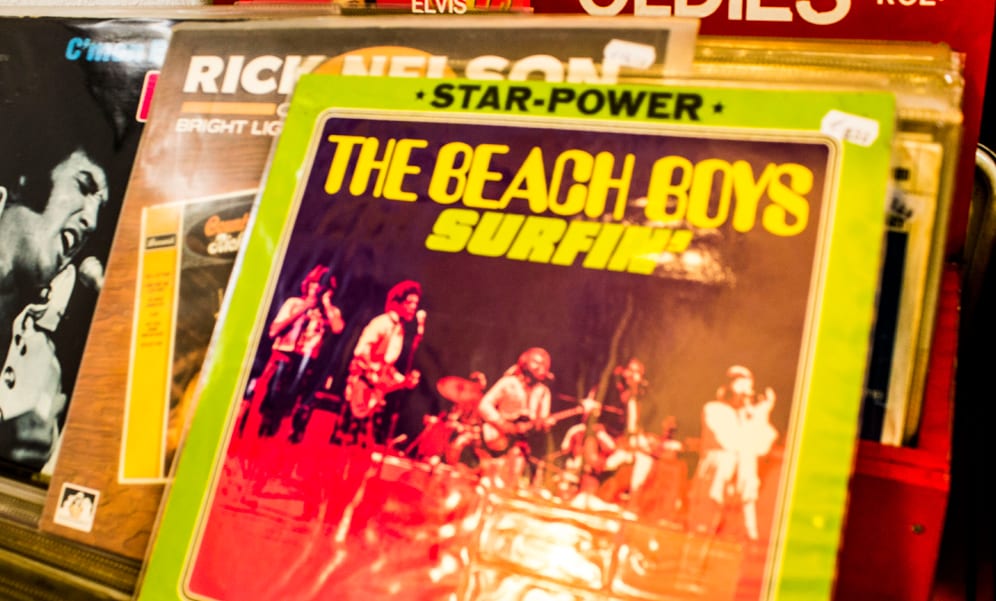When I hear someone talk about “the good ol’ days”, the great decade of the 50s always comes to mind. Women wearing polka dot dresses and hairstyles resembling Marilyn Monroe’s. Men with hair wax shaking their feet to the sound of Rock & Roll in the background.

The good ol’ times

However, some might remember the “the good ol’ times” as a time when hard work would be compensated with a reward for the dedicated individuals.
A good project for school would require a person to go to the library and browse through a wide variety of books and articles. Communication meant going to meet someone personally to discuss.
Besides, someone that wanted to know the latest news would have to succumb to the routine of having to wake up early, walk towards the front door, and pick up the newspaper.
Everyone did what was necessary to meet their goals (independently of the work that was required); they recognized that to obtain, they would have to make an effort.
I want it now!
Now, everything has become exponentially less difficult. We have fallen into a culture that knows no limits, the culture of the: “I want it now!” In 2009, Stian Reimers (member of the Centre for Economic Learning and Social Evolution in London) performed a social experiment where a group was offered the chance of winning 45 pounds in three days, or winning 70 pounds in three months. Most of the people chose the 45 pounds.
Reimers concluded: “Our research shows that people with an impulsive money-today attitude ignore the future in other ways.” We are blinded by our immediate desires and we aren’t thinking in the consequences that these desires might cause.

We have gotten used to giving up if we can’t find something on Google or if we don’t get what we want, at the exact moment at which we want it. The internet has made everything too easy.
Do not think that I consider it bad; I just think the internet can be an incapacitating agent for some people. We are no longer “able” to stand up and go to the library; we are no longer “able” to travel just to meet someone; we are no longer “able” to wait or even think.
Humans are looking for immediate results and aren’t willing to wait to obtain our due reward. Relationships have become dull with the passing of years; encounters have lost the romantic charm that they used to have in novels such as: “The Sorrows of Young Werther” by Goethe.
A slight touch between Werther and his loved one felt like a sin for him; he loved her, not to have her physically, but to share an intellectual relationship.
Immediate desires
Now, men and women try to fulfill their desires immediately and they don’t even want to know each other fully to share a relationship. A date is no longer a unique event; now couples sit at opposite sides of a table and chat through their phones, between themselves (and sometimes not even that), instead of establishing a conversation and looking each other in the eyes.
The complexity of the vast Spanish language has narrowed down to degrading phrases such as: “ola k ase” (Hi what you do) in the social networks, chats, or even in daily conversations.
It might sound funny when you first hear it, but when we look at the Spanish tongue’s origin, we can realize that phrases like this debase our language’s importance and value.
We are slowly coming closer to the future with the mesmerizing advances we make in science and technology.

Nevertheless, the never-ending amount of theories about the origin of the human species leave us in doubt: Who am I? Our beliefs are tested and our convictions are lessened. I am not criticizing your beliefs, but I want to ask you: Now that there are so many truths, haven’t you considered that none might actually be true?
A new scientific or religious theory will arise each day, and since we have so many options to choose from (concerning our origin), it will become harder to assume an identity. If no one can form an identity, who will be the one who will be different from the rest, the one that was able to find his true self?
The progress we make comes with a proportional moral decline. Our immediate necessities have caused science and religion to provide us answers, but they have also taken away our identity.

The sacrifice
Every achievement is complemented with a sacrifice. This is the lesson that I’ve learned when seeing the wonders that the internet has given us with its social networks, online games and image-sharing services.
All of these creations show there disadvantages when people that use them become their slaves; people have obtained new forms of communication for a high price. However, the internet is not the only thing that harms us; our lack of identity and our conformist attitude have enabled it.
The culture of the: “I want it now!” has become our downfall. If we ever want to go back to “the good ol’ days”, we must have self-control and be patient. So, let’s work hard and prevent ourselves from being the “Average Joe and Plain Jane”. Leave a footprint in the world and make a change! Advance with caution if you want to advance at all.

Some might then ask me: What compels you to write this? How can you understand the complexity of the world with so little time to analyze it as a student? My answer is: “I’m worried”. It is my concern and sadness that have compelled me to speak up.
I hope my words might reach at least one person’s core. I WANT PEOPLE TO KNOW MY SUFFERING! Truth be told, I don’t understand how more people aren’t reacting to this crazy society.
Many years of mistakes and achievements have been forgotten into oblivion. “People who forget their history are condemned to repeat it” says the writer Marco Tulio Cicerón. Are we taking these words too lightly? Our mistakes and crimes will come back at us at some moment, how long will it take us to realize this? Finally, I cannot over-emphasize the point: we must be patient, work hard, and most of all, try to make a change. Start NOW!


